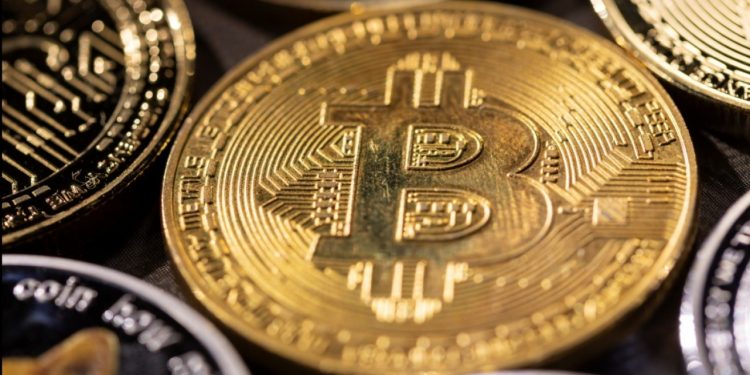Shang-Jin Wei
When Tesla CEO Elon Musk promoted the Dogecoin and Bitcoin cryptocurrencies, their prices shot up. While some countries are taking a wait-and-see attitude toward private digital money, El Salvador has embraced Bitcoin as an official currency. And the New York State Department of Financial Services (NYDFS) has been busy issuing licenses (and collecting fees) to people who want to create and trade cryptocurrencies. Taking the opposite tack, China has recently banned both the mining of cryptocurrencies and their use as a medium of exchange.
Given the diverse policy responses, how should we assess the social costs and benefits of different types of digital currency? Let us consider free-floating cryptocurrencies, stablecoins, and central bank digital currencies (CBDCs).
The prices of free-floating cryptocurrencies – of which Bitcoin is the most famous example – are not anchored to any other asset. Despite their rapid growth, it is important to remember that cryptocurrencies have no intrinsic fundamental value and are therefore vulnerable to price crashes.
The recent run-up in cryptocurrency prices recalls the seventeenth-century tulip price bubble in the Netherlands, when an initial price increase attracted more buyers to the market, pushing up prices further. But, as with the tulip mania, some seemingly random news in the future could end the cryptocurrency boom, triggering a downward price spiral as existing owners rush to the exit.
One attraction of cryptocurrencies for investors and speculators is that they resemble a lottery ticket – while the potential loss is limited to what you pay for it, the potential gains could be enormous. Although we lack precise data on who is trading cryptocurrencies, research on lottery tickets suggests that less wealthy investors are more likely to be attracted to this market. Crypto exchanges like Coinbase have made buying cryptocurrencies as easy as buying a lottery ticket, with the minimum trade as low as $2. This means any future price crash is likely to hurt the segment of society least able to afford a drop in their savings.
In contrast to free-floating cryptocurrencies, stablecoins’ value is pegged to either an official currency such as the US dollar or Japanese yen or to a precious commodity like gold or oil, and thus have a natural anchor for their prices. But investors should first ask whether a stablecoin issuer is backing their coin fully with the equivalent amount of underlying assets. Otherwise, the stablecoin’s intrinsic value should reflect the risk that, in a major market crash, the coin provider may not have sufficient reserves to convert all their coins to high-quality assets without imposing a haircut on the promised value.
Even stablecoin providers who promise to hold full collateral should have their reserves regularly and independently audited. Entities such as NYDFS that issue operating licenses to coin providers typically do not perform such a function.
In countries that have a history of high inflation or hyperinflation, such as some in Latin America and Africa, there may be a case for using stablecoins as a medium of exchange. But for most countries with a reasonably well managed monetary policy, stablecoins could undermine policy effectiveness by making the overall liquidity in the economy less controllable by central banks. Moreover, both stablecoins and free-floating cryptocurrencies can be, and have been, used to launder money and for other illicit financial transactions.
CBDCs are a much better bet. For starters, they can save governments billions of dollars by removing the need to circulate and maintain notes and coins. The United States, for example, currently spends more than $1 billion each year on minting, printing, and maintaining coins and paper notes. The savings that would result from introducing an official digital dollar could be deployed for other socially useful programs – such as providing free Medicaid to the 31.1 million Americans who are not covered by any medical-insurance program, or funding the National Endowment for the Arts five times over.
Because CBDCs are also a means of payment that could be used instead of a credit card, they can exert pressure on existing payment providers to become more efficient and reduce their transaction fees. Consumers and businesses alike will benefit.
Moreover, because official digital currencies are issued by central banks, they do not compromise the effectiveness of monetary policy. And while all digital payment and transaction systems raise questions about data security and the protection of personal information, CBDCs have as good a chance as their private-sector alternatives of addressing these concerns.
While CBDCs will help to improve the financial system’s efficiency, free-floating cryptocurrencies do not have a bright future and carry the risk of financial instability. Stablecoins are somewhere in between. For these reasons, we should not be surprised to see more countries over the next few years ban free-floating cryptocurrencies as a medium of exchange, roll out official digital currencies, and impose strict regulations on stablecoins.
Shang-Jin Wei, a former chief economist at the Asian Development Bank, is Professor of Finance and Economics at Columbia Business School and Columbia University’s School of International and Public Affairs. ©Project Syndicate.






































